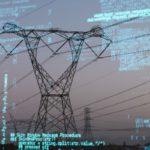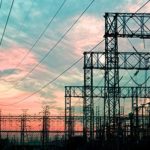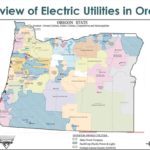
STATE RESOURCE CENTER ON ENERGY SECURITY
As the leaders of their states, governors are ultimately responsible for preparing for and responding to energy emergencies in their states – and are uniquely positioned to do so. There are a number of steps governors can take to ensure their states are well-positioned to respond to electrical blackouts, oil and gas shortages and other energy-related crises. The National Governors Association developed this State Resource Center on Energy Security to provide governors and other senior state officials with a one-stop-shop for the information and resources they need to plan for and respond to energy emergencies.
NGA State Resilience Assessment And Planning Tool
The State Resilience Assessment and Planning Tool (SRAP Tool) was created to help Governors and their staffs assess state resilience, identify gaps, and plan for natural and man-made disasters. The tool and related efforts build upon the experiences of states and community leaders around the U.S. and globally.
The SRAP Tool uses all hazards to help states prepare for a wide range of natural and man-made threats. Those can include storms such as hurricanes and tornados, earthquakes, tsunamis, cyber and physical attacks, and terrorist attacks. The development of the SRAP Tool was conducted under a grant from the U.S. Department of Energy. While the SRAP Tool is applicable to a broad range of resilience efforts, this version focuses on energy assurance and continuity of operations for that sector primarily, along with other critical infrastructure systems such as transportation, communications, and water. Learn more and download the tool here, or for a demonstration of the tool, view this webinar.
Featured
Executive Authority During Energy Emergencies

A tool to help Governors prepare in advance of an energy emergency and inform their decision making in the event of an energy emergency.
NGA Energy Security Library

Addressing Cybersecurity for Critical Energy Infrastructure through State Governing Bodies

State Resilience Assessment and Planning Tool Demonstration

State Resilience Assessment and Planning Tool

2020 Governors Advisors Energy Policy Institute

Energy Security Brief – Spring 2020

COVID-19 Impacts to Energy Security
State Moratoriums on Utility Shut-offs and Related Actions During the COVID-19 Pandemic
Governor Guidance on the Energy Sector During COVID-19 Response
GridEx V State After-Action Workshop

State Strategies to Improve Energy Resilience through Distributed Technologies
External Resources
- DOE Energy Waiver Library
- NASEO Guidance for States on Petroleum Shortage Response Planning
- American Public Power Association Restoration Best Practices Guidebook
- American Public Power Cybersecurity Scorecard
- NCEP – State Agency Coordination During Energy-Related Emergencies
- NARUC Cybersecurity Preparedness Evaluation Tool
- NARUC Cybersecurity Glossary
- U.S. DOE – CESER State, Local, Tribal, and Territorial Program
- U.S. DOE – CESER State and Regional Energy Risk Profiles
COVID-19 Resources
Federal
- U.S. DOE: Coronavirus Hub
- U.S. DOE: FAQ on COVID-19 Energy Sector Response Efforts
- U.S. DHS, Cybersecurity and Infrastructure Security (CISA) Guidance: Identification of Essential Critical Infrastructure Workers During COVID-19 Response
- DHS CISA: COVID-19 Homepage
- FERC: Coronavirus Response
- FBI: Cybersecurity Public Service Announcement
- U.S. EPA: Memo on Enforcement and Compliance Assurance Program
- OSHA: Guidance on Preparing Workplaces for COVID-19
State Association Partners
- National Association of State Energy Officials (NASEO) Support for State Energy Offices
- National Association of Regulatory Utility Commissioners (NARUC) COVID News and Resources
- National Conference of State Legislatures (NCSL) State Legislator COVID-19 Resources
Trade Associations
- Electricity Subsector Coordinating Council (ESCC): COVID-19 Resources
- Edison Electric Institute: Pandemic page
- American Public Power Association: Coronavirus page
- National Rural Electric Cooperatives: COVID-19 page
- Nuclear Energy Institute (NEI) COVID-19 Response Page
- American Petroleum Institute: Pandemic Resources page
- American Gas Association: Coronavirus page
- International Liquid Terminals Association: Pandemic Resources page
- Petroleum Marketers Association of America: Coronavirus Resources page
- American Fuel and Petrochemical Manufacturers: COVID-19 page
- American Public Gas Association: Coronavirus Resources page
- International Association of Drilling Contractors: COVID-19 Update page
- Interstate Natural Gas Association of America: COVID-19 Response page
- Offshore Operators Committee: COVID-19 Mitigations page
